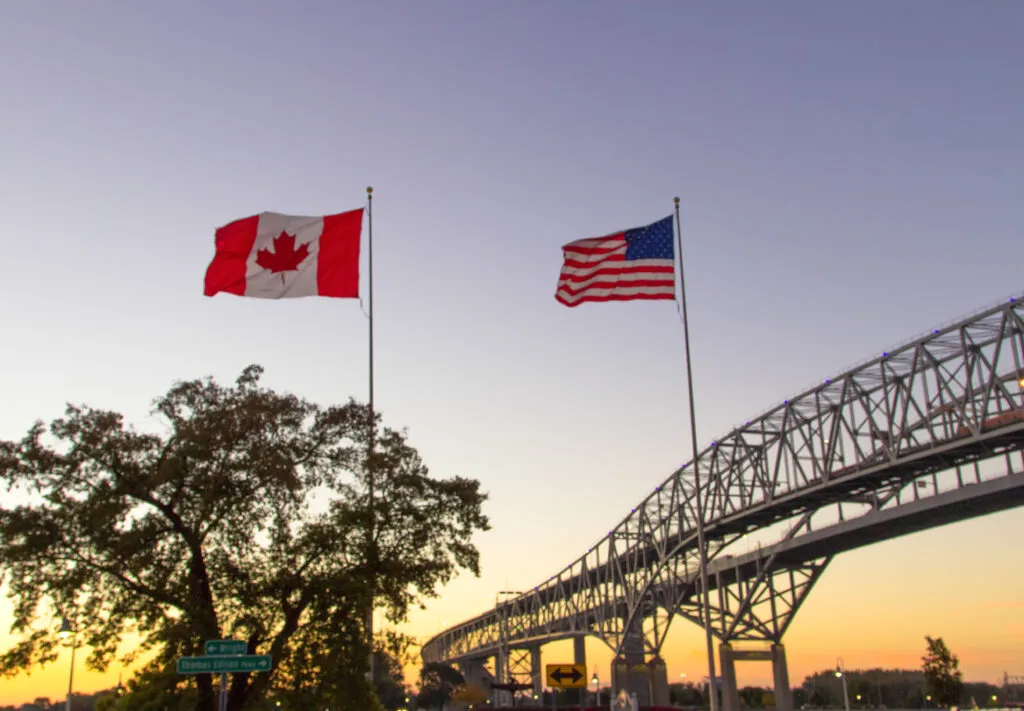Can You Enter Canada If You Have A DUI?
For Americans, Canada is often seen as a welcoming neighbor with shared borders and plenty of points of entry. However, for individuals with a DUI conviction, things can get complicated.
Canada has strict laws regarding criminal inadmissibility, and a DUI, whether a misdemeanor or felony, places you in this category. Here’s an updated guide on why this restriction exists and how to overcome it if you’re planning to travel to Canada.

Why Does Canada Deny Entry to Those with a DUI?
Canada views impaired driving as a serious criminal offense. Since December 18, 2018, the Canadian government has increased the maximum penalty for DUI offenses to a decade of imprisonment. This strict policy means that a DUI conviction now qualifies as “serious criminality,” and such offenses no longer benefit from automatic rehabilitation after 10 years. Even if you have a single DUI with no plans to drive in Canada, you can still be denied entry due to this legal classification.
Additionally, Canadian border officers have access to U.S. criminal databases, so attempting to hide a DUI conviction is not only ineffective—it can lead to a longer ban or permanent inadmissibility if dishonesty is detected.
How Can You Enter Canada with a DUI?
While a DUI can bar you from entry, there are several ways to regain admissibility. Depending on your case, temporary or permanent solutions may be available.
1. Obtain a Temporary Resident Permit (TRP)
- A TRP allows individuals with a DUI to enter Canada for a specific purpose, such as a business trip or family event.
- TRPs can be valid for a single visit or multiple visits over a period of up to three years.
- You must demonstrate a valid reason for your visit and prove that the benefits of your entry outweigh any risks to Canadian society.
- Applications for a TRP should be submitted well in advance of your travel date, as processing can take time.
2. Apply for Criminal Rehabilitation
- Criminal Rehabilitation is a permanent solution that forgives your prior DUI conviction.
- To be eligible, at least five years must have passed since the sentence for your DUI was completed. This includes the payment of fines, completion of probation, community service, and other court-mandated tasks.
- Once your rehabilitation application is approved, you’ll regain the ability to travel to Canada freely without needing to renew your admissibility.
3. Deemed Rehabilitation
- Under certain circumstances, U.S. residents with a single DUI conviction may be “deemed rehabilitated” if sufficient time has passed since their sentencing.
- However, due to Canada’s stricter DUI laws post-2018, automatic Deemed Rehabilitation is no longer available for offenses classified under “serious criminality.”
- If your offense occurred before December 18, 2018, and over 10 years have passed, you may still qualify for “grandfathered” Deemed Rehabilitation. It’s essential to consult an immigration lawyer to confirm eligibility.
For more information on regaining entry into Canada after getting a DUI, visit the Government of Canada website.
A DUI conviction can result in criminal inadmissibility to Canada, posing a significant barrier to entry. While options like a Temporary Resident Permit or Criminal Rehabilitation exist, they require thorough preparation and accurate documentation. To streamline this process and enhance your chances of approval, consulting a Canadian immigration lawyer is crucial. Proper preparation and a clear understanding of your options are essential for a smoother border crossing. For personalized guidance, consider a free consultation with a specialized immigration lawyer.
